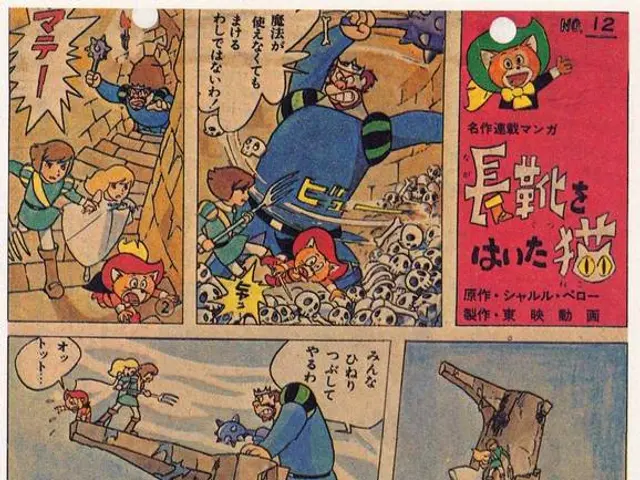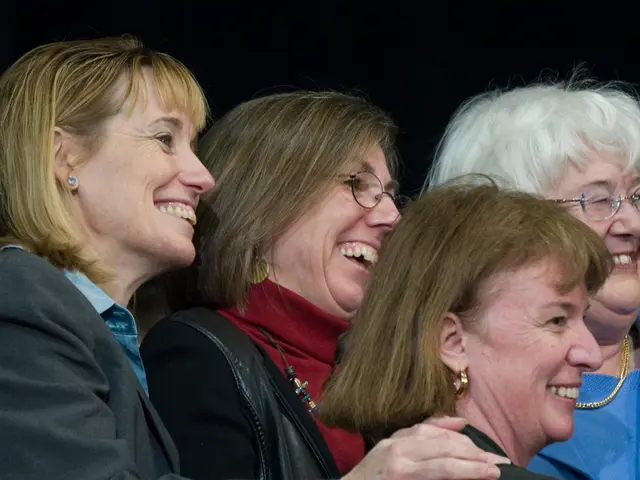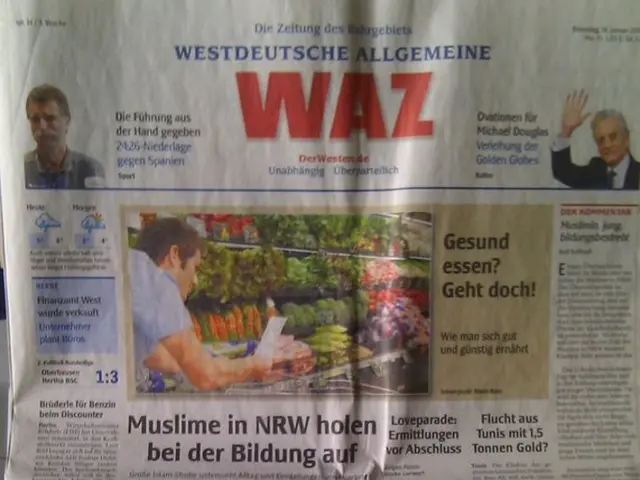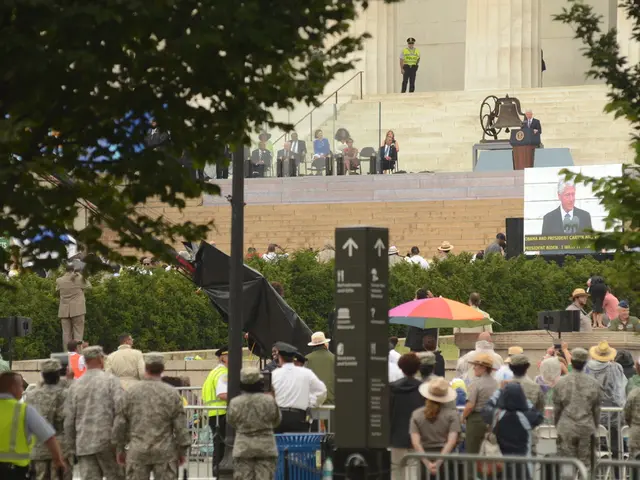Berlin modifies its stance in the Gaza conflict
Germany Pauses Weapons Sales to Israel Amid Gaza Conflict
In the ongoing conflict between Israel and the Gaza Strip, Germany has taken a cautious yet firm stance, expressing support for Israel's security while addressing growing concerns over the humanitarian crisis in Gaza.
On August 8, 2025, Chancellor Friedrich Merz announced a pause in weapon sales to Israel, following Israel's announcement of plans to occupy all of Gaza. Germany, however, has refused to characterize Israeli actions as genocide and does not accept Palestinian refugees from Gaza.
Merz has emphasized Germany's historical responsibility to stand with Israel, but has also criticized Israel's military actions in the Gaza Strip and the resulting humanitarian catastrophe. The German government has provided emergency humanitarian aid to Gaza, but aims to maintain a balanced diplomatic stance, preserving its close relationship with Israel while avoiding isolation within Europe.
Within the German governing coalition, there is no formal rift, despite some differences in opinion. While some coalition members have advocated joining international calls for an immediate ceasefire, Germany has refrained from endorsing such declarations, maintaining a united front at the leadership level.
The Young Union (JU) has criticized Merz's decision as a departure from Union policy fundamentals, stating that Israel is doing "the dirty work for us" without German weapons. On the other hand, Vice-Chancellor Lars Klingbeil has supported Merz's approach, stating that humanitarian aid must be allowed into Gaza as quickly and comprehensively as possible.
The Israeli government, led by Prime Minister Benjamin Netanyahu, has accused the German government of rewarding the Islamic Hamas with a partial arms export ban. Netanyahu stated that Israel's goal was not to occupy the Gaza Strip, but to free it from Hamas and enable a peaceful government there.
The opposition in Germany, including the Green Party and the Left Party, believes the German government's policy shift doesn't go far enough and is calling for further steps, such as actively pushing for a political process, serious pressure for an end to the war and the humanitarian catastrophe, the release of hostages, and a political perspective. Lea Reisner, a Left Party politician, has also called for suspending the EU association agreement and recognizing Palestine.
Foreign Minister Johann Wadephul warned against the annexation of the West Bank or the Gaza Strip during a visit to Israel and the Palestinian territories. The German government's stance contrasts with broader European calls for ceasefire and criticism of Israel’s operations, reflecting a unique historical and political context shaping Berlin’s position.
In summary, Germany's stance on the Gaza conflict remains supportive of Israel’s security but shows signs of cautious adjustment amid worsening humanitarian conditions. The German government has paused weapons sales to Israel, provided emergency humanitarian aid, and maintains a balanced diplomatic stance, preserving its close relationship with Israel while avoiding isolation within Europe.
Radio broadcasts in Germany are discussing the political implications of the country's decision to pause weapons sales to Israel amid the ongoing Gaza conflict. The general news segment is also covering the debates within the governing coalition, with the Young Union criticizing Chancellor Friedrich Merz's approach, while Vice-Chancellor Lars Klingbeil supports Merz's stance on allowing humanitarian aid into Gaza. The crime-and-justice segment is discussing accusations from the Israeli government, led by Prime Minister Benjamin Netanyahu, who has accused the German government of rewarding the Islamic Hamas with a partial arms export ban. Meanwhile, the opposition parties are calling for further steps, such as actively pushing for a political process, serious pressure for an end to the war and the humanitarian catastrophe, the release of hostages, and a political perspective, including the suspension of the EU association agreement and recognizing Palestine. War-and-conflicts and politics remain the focus of international news outlets covering the issue.








